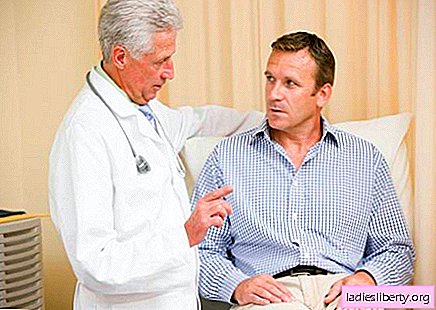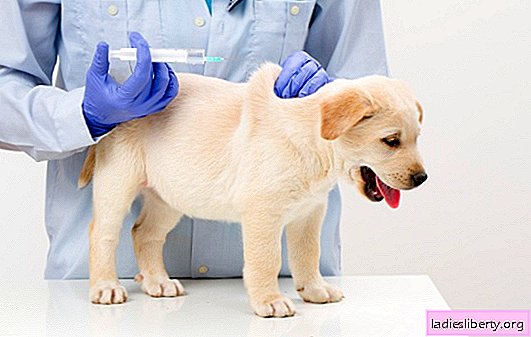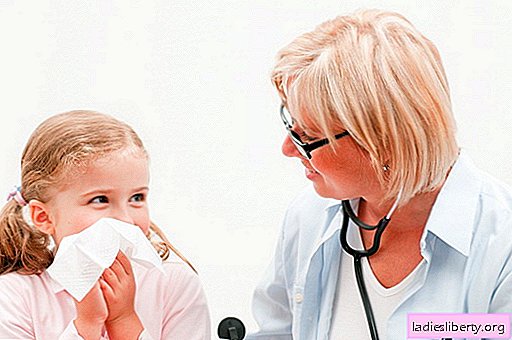
Even today, when a headache is no longer treated with a heavy stone, many adults experience intense fear and discomfort before visiting a doctor. This painful condition can sometimes cause depression, and in especially difficult cases provoke a mental attack.
According to the results of the surveys, the most acute psychological reactions are caused by such specialists as a dentist, gynecologist and oncologist. The unknown and the shame imposed by society are powerful stimulants that trigger these reactions inside the brain.
For example, it happens that a woman is fully aware that she does not have and cannot have sexually transmitted diseases, but misses the annual medical examinations, fearing painful manipulations and an alleged certainty of conviction and rudeness on the part of medical personnel. While in most cases a woman does not experience pain at a gynecologist, if she is relaxed and fully trusts her attending physician.
Ignoring preventive examinations, a woman may miss the onset of a dangerous gynecological abnormality.
It would be very nice if everyone could choose a doctor whom he really trusts, and if this happens, then it is worth discarding the dubious shame imposed by the opinions of others, as well as doubts and preparing yourself for such a trip.
If you are not sure that you can handle the conversation without worry, it will be better to write down all the questions that may arise during the examination or other manipulations. If you read it, no one will blame you, and the conversation will turn out to be exhaustive. It will not be superfluous to carry with you the results of tests done before contacting a specialist, as well as medical reports.
Probably all our fears come from childhood. Everyone remembers this typical mother’s: "behave yourself, otherwise your aunt will give an injection!". Even understanding that nothing like this will happen at a conscious age does not make a person less vulnerable to fear.
Of course, do not forget that the doctor can be an excellent specialist, but at the same time be detached and mean in communicating with the patient. Do not take this too seriously, because you come to the reception to identify the disease, and not in order to find a pleasant interlocutor.
Also, do not be shy or afraid to show interest. On the contrary, if you are not clear about any nuances, you must ask all your questions about the disease and its treatment. If someone close to you can accompany you, it will be nice.
Do not think of doctors as villains who intentionally want to hurt you. From such fears and fears most went to dentists. And it seems that even in the age of advanced medicine and trouble-free anesthesia, nothing can erase from our memories the sound and smell of that Soviet drill, which terrifies children and allows parents to say: “you won’t obey, the dentist will drill all your teeth!”.
Of course, in order to cure your teeth you will have to endure discomfort and discomfort, following the instructions of the doctor, but all you need to remember is that all this is aimed at defeating the ailment.
Indeed, medicine has achieved a lot today. Many procedures of some twenty or even fifteen years ago, which instilled fear in patients today, are performed with comfort and completely different tools. The drugs began to have fewer side effects, the level of technology has grown significantly, a huge number of health and preventive techniques have appeared. Finally, you need to stop drawing scary pictures of your visits to the doctor and tune in to a competent and productive dialogue with a professional. After all, sometimes you can pay for it with health.
For example, many young women feel doomed to cancer. Deteriorating ecology, social advertising, examples from the surrounding reality add oil to the fire. Often such stories paralyze and cause almost psychic phobias.
Often, the treating doctors involuntarily provoke a panic, sending the girls with sensations of soreness in the chest to the oncologist, not explaining that they had not been sentenced to death soon and still hadn’t found anything “terrible” from them.
Such patients, as a rule, come already doomed to the dispensary, expectations in the corridors do not add optimism, posters of prosthetic firms also do not contribute to a surge of decisiveness. In this regard, many forget that in almost 90% of cases in young women, all neoplasms are benign and can be cured without surgery. But after reaching the age of 35, an annual visit to a mammologist or oncologist should nevertheless become mandatory, because any disease is better to prevent.
And the sooner you begin to struggle with psychological attitudes, the faster you will be able to take a step towards a comfortable and measured life without unexpected health surprises.
Comments











